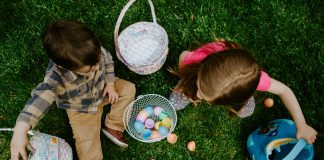As the Easter weekend arrives, communities up and down the country prepare to mark one of the most significant holidays in the Christian calendar — Good Friday and Easter Sunday. While rooted in deep religious meaning, Easter has also evolved into a season of unity, reflection, and joy, embraced by people from all walks of life, regardless of faith or background.
Good Friday commemorates the crucifixion of Jesus Christ, a day of solemn reflection and sacrifice for Christians. It marks the beginning of a spiritual journey culminating in Easter Sunday, which celebrates Christ’s resurrection and the triumph of hope over despair. For churches across the UK, this weekend remains one of the most spiritually significant times of the year, with services, processions, and community gatherings taking place in cities, towns, and villages.
Yet beyond its religious roots, Easter has grown into a celebration that transcends religious boundaries, bringing together communities through shared values of renewal, compassion, and generosity. In recent years, many people from non-Christian faiths and secular backgrounds have taken part in Easter activities, from school Easter bonnet parades to community egg hunts and shared meals.
Part of Easter’s cross-cultural appeal lies in its symbolism and traditions, many of which have origins that pre-date Christianity. The egg, for example, has long been a symbol of new life and rebirth, tracing back to ancient pagan spring rituals. Today, that symbolism lives on through the beloved chocolate Easter egg a treat enjoyed by people of all ages and backgrounds.
In the UK alone, over 80 million Easter eggs are sold every year, according to industry figures, a tradition that has not only become central to Easter celebrations, but also a booming part of the retail calendar. Supermarkets, chocolatiers, and independent bakeries all join in the seasonal buzz, offering a range of treats, from the traditional Cadbury egg to luxury artisan creations.
Community centres, schools, and interfaith groups often organise inclusive Easter-themed events. Across the UK, cities known for their multicultural spirit, schools with pupils from South Asian, Eastern European, African and Middle Eastern backgrounds often hold Easter art projects or storytelling sessions, focusing on the values of kindness, sacrifice, and community.
For many, Easter is also a time for giving back. Food banks and charities across the UK see a surge in donations during the Easter period, with volunteers of all faiths distributing food hampers and Easter eggs to families in need. In London, one local community group partnered with a mosque and a church to deliver Easter gifts to refugee families — a powerful symbol of how shared compassion can bridge cultural divides.
At its heart, Easter is a celebration of hope and transformation — themes that resonate universally, regardless of religious affiliation. In a country as diverse as the UK, these shared values are a reminder that there is more that unites us than divides us.
While many will attend church services this weekend, others will enjoy the break with family gatherings, nature walks, or simply enjoying a moment of pause. Some will cook traditional Easter meals — lamb roast, hot cross buns — while others may share cultural fusions, blending dishes from different traditions.
The long weekend offers a chance for people to reflect, recharge and reconnect — something that resonates more deeply after the turbulence of recent years. And for children, of course, the thrill of the Easter egg hunt — colourful, fun and full of joy — remains a highlight.
In a world that can often feel divided, Easter stands as a gentle reminder of renewal, generosity, and the quiet power of togetherness. Whether marked with prayer, a meal, or the breaking of chocolate eggs, the season invites all to celebrate life, love and new beginnings.




